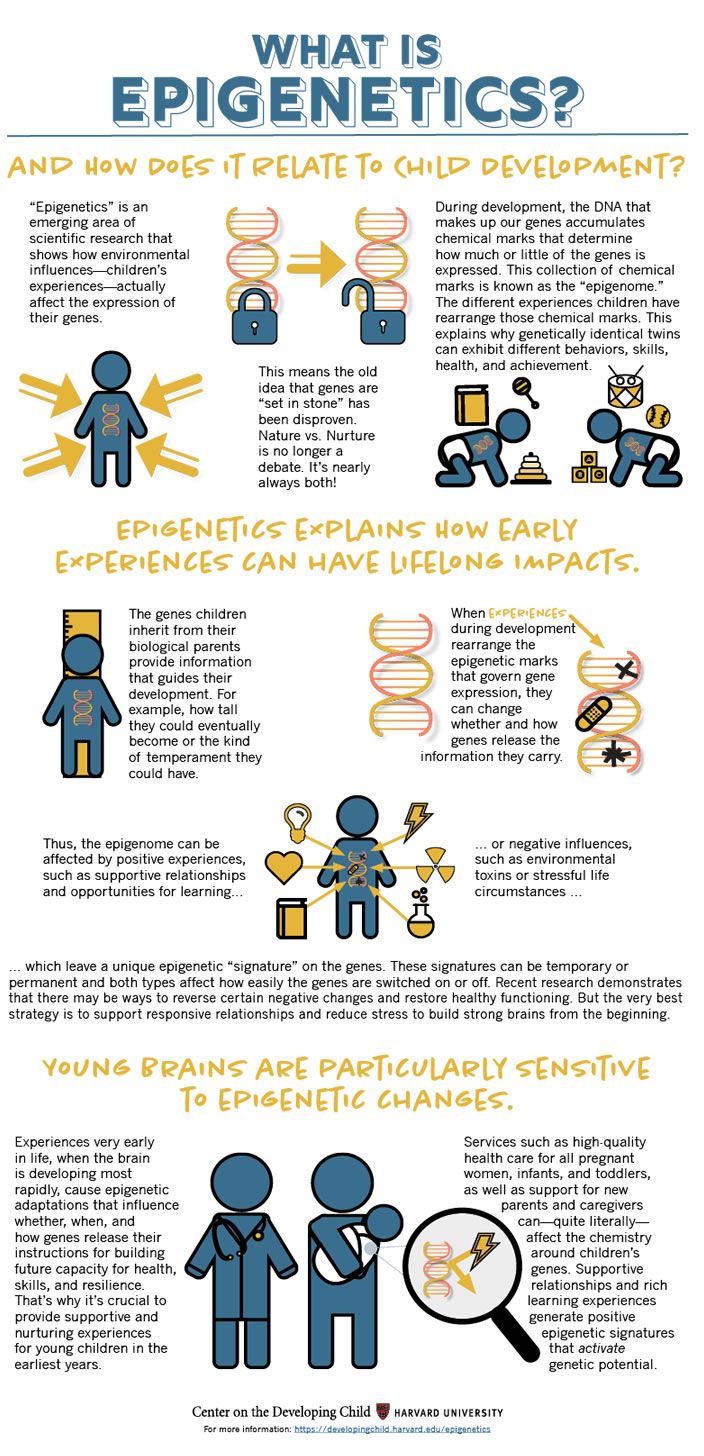Not set in stone
Contrary to popular belief, the genes inherited from one’s parents do not set a child’s future development in stone. Variations in DNA sequences between individuals certainly influence the way in which genes are expressed and how the proteins encoded by those genes will function.
But that is only part of the story — the environment in which one develops, before and soon after birth, provides powerful experiences that chemically modify certain genes which, in turn, define how much and when they are expressed.
Thus, while genetic factors exert potent influences, environmental factors have the ability to alter the genes that were inherited.
Although frequently misunderstood, adverse fetal and early childhood experiences can — and do — lead to physical and chemical changes in the brain that can last a lifetime.
Injurious experiences, such as malnutrition, exposure to chemical toxins or drugs, and toxic stress before birth or in early childhood are not forgotten, but rather are built into the architecture of the developing brain through the epigenome.
The ‘biological memories’ associated with these epigenetic changes can affect multiple organ systems and increase the risk not only for poor physical and mental health outcomes but also for impairments in future learning capacity and behavior.
Despite some marketing claims to the contrary, the ability of so called enrichment programs to enhance otherwise healthy brain development is not known.
While parents and policymakers might hope that playing Mozart recordings to newborns will produce epigenetic changes that enhance cognitive development, there is absolutely no scientific evidence that such exposure will shape the epigenome or enhance brain function.
Changing brains
What research has shown is that specific epigenetic modifications do occur in brain cells as cognitive skills like learning and memory develop, and that repeated activation of brain circuits dedicated to learning and memory through interaction with the environment, such as reciprocal serve and return interaction with adults, facilitates these positive epigenetic modifications.
We also know that sound maternal and fetal nutrition, combined with positive social-emotional support of children through their family and community environments, will reduce the likelihood of negative epigenetic modifications that increase the risk of later physical and mental health impairments.
The epigenome can be affected by positive experiences, such as supportive relationships and opportunities for learning, or negative influences, such as environmental toxins or stressful life circumstances, which leave a unique epigenetic signature on the genes.
These signatures can be temporary or permanent and both types affect how easily the genes are switched on or off. Recent research demonstrates that there may be ways to reverse certain negative changes and restore healthy functioning, but that takes a lot more effort, may not be successful at changing all aspects of the signatures, and is costly. Thus, the very best strategy is to support responsive relationships and reduce stress to build strong brains from the beginning, helping children grow up to be healthy, productive members of society.
Reference
https://developingchild.harvard.edu/resources/what-is-epigenetics-and-how-does-it-relate-to-child-development/




































































































































